12 books by Oliver Sacks
Requirements: ePUB Reader | 27 MB | Version: Retail
Overview: Oliver Wolf Sacks, CBE (born 9 July 1933), is a British-American biologist, neurologist, writer, and amateur chemist known as the professor of neurology and psychiatry at Columbia University, where he held the position of "Columbia Artist". He spent many years on the clinical faculty of Yeshiva University’s Albert Einstein College of Medicine. In September 2012, Sacks was appointed clinical professor of neurology at NYU Langone Medical Center, with support from The Gatsby Charitable Foundation. He also holds the position of visiting professor at the UK’s University of Warwick. Sacks is the author of numerous best-selling books, including several collections of case studies of people with neurological disorders. His 1973 book Awakenings was adapted into an Academy Award-nominated film of the same name in 1990 starring Robin Williams and Robert De Niro.
Genre: Non Fiction | Medical/Psychology | Memoirs
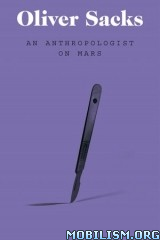
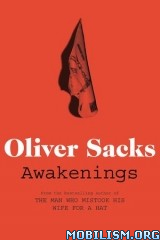
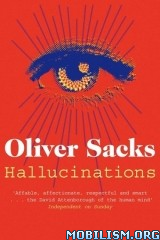
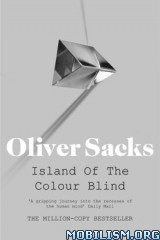
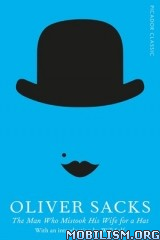
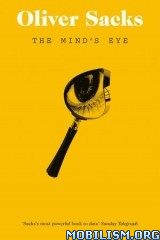
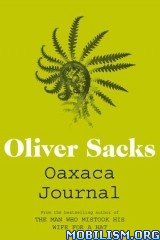
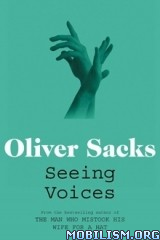
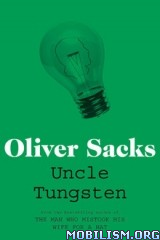
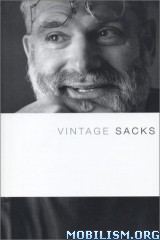
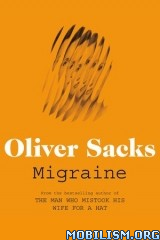
An Anthropologist on Mars
To these seven narratives of neurological disorder Dr. Sacks brings the same humanity, poetic observation, and infectious sense of wonder that are apparent in his bestsellers Awakenings and The Man Who Mistook His Wife for a Hat. These men, women, and one extraordinary child emerge as brilliantly adaptive personalities, whose conditions have not so much debilitated them as ushered them into another reality.
Awakenings
Awakenings–which inspired the major motion picture–is the remarkable story of a group of patients who contracted sleeping-sickness during the great epidemic just after World War I. Frozen for decades in a trance-like state, these men and women were given up as hopeless until 1969, when Dr. Oliver Sacks gave them the then-new drug L-DOPA, which had an astonishing, explosive, "awakening" effect. Dr. Sacks recounts the moving case histories of his patients, their lives, and the extraordinary transformations which went with their reintroduction to a changed world.
Hallucinations
Humans have always sought such life-changing visions, and for thousands of years have used hallucinogenic compounds to achieve them. As a young doctor in California in the 1960s, Oliver Sacks had both a personal and a professional interest in psychedelics. These, along with his early migraine experiences, launched a lifelong investigation into the varieties of hallucinatory experience.
Here, with his usual elegance, curiosity, and compassion, Dr. Sacks weaves together stories of his patients and of his own mind-altering experiences to illuminate what hallucinations tell us about the organization and structure of our brains, how they have influenced every culture’s folklore and art, and why the potential for hallucination is present in us all, a vital part of the human condition.
The Island of the Colorblind
"An explorer of that most wondrous of islands, the human brain," writes D.M. Thomas in The New York Times Book Review, "Oliver Sacks also loves the oceanic kind of islands." Both kinds figure movingly in this book–part travelogue, part autobiography, part medical mystery story–in which Sacks’ journeys to a tiny Pacific atoll and the island of Guam become explorations of the meaning of islands, the genesis of disease, the wonders of botany, the nature of deep geological time, and the complexities of being human.
The Man Who Mistook His Wife for a Hat
In his most extraordinary book, "one of the great clinical writers of the 20th century" (The New York Times) recounts the case histories of patients lost in the bizarre, apparently inescapable world of neurological disorders. Oliver Sacks’ The Man Who Mistook His Wife for a Hat tells the stories of individuals afflicted with fantastic perceptual and intellectual aberrations: patients who have lost their memories and with them the greater part of their pasts; who are no longer able to recognize people and common objects; who are stricken with violent tics and grimaces or who shout involuntary obscenities; whose limbs have become alien; who have been dismissed as retarded yet are gifted with uncanny artistic or mathematical talents.
The Mind’s Eye
With compassion and insight, Dr. Oliver Sacks again illuminates the mysteries of the brain by introducing us to some remarkable characters, including Pat, who remains a vivacious communicator despite the stroke that deprives her of speech, and Howard, a novelist who loses the ability to read. Sacks investigates those who can see perfectly well but are unable to recognize faces, even those of their own children. He describes totally blind people who navigate by touch and smell; and others who, ironically, become hyper-visual. Finally, he recounts his own battle with an eye tumor and the strange visual symptoms it caused. As he has done in classics like The Man Who Mistook his Wife for a Hat and Awakenings, Dr. Sacks shows us that medicine is both an art and a science, and that our ability to imagine what it is to see with another person’s mind is what makes us truly human.
Oaxaca Journal
Since childhood, Oliver Sacks has been fascinated by ferns: an ancient class of plants able to survive and adapt in many climates. Along with a delightful group of fellow fern aficionados—mathematicians, poets, artists, and assorted botanists and birders—he embarks on an exploration of Southern Mexico, a region that is also rich in human history and culture. He muses on the origins of chocolate and mescal, pre-Columbian culture and hallucinogens, the vibrant sights and sounds of the marketplace, and the peculiar passions of botanists. What other species would comb ancient Zapotec ruins on their hands and knees, searching for a new type of fern? Combining Sacks’ enthusiasm for natural history and the richness of humanity with his sharp and observant eye for detail, Oaxaca Journal is a rare treat.
Seeing Voices: A Journey Into the World of the Deaf
Like The Man Who Mistook His Wife for a Hat, this is a fascinating voyage into a strange and wonderful land, a provocative meditation on communication, biology, adaptation, and culture. In Seeing Voices, Oliver Sacks turns his attention to the subject of deafness, and the result is a deeply felt portrait of a minority struggling for recognition and respect–a minority with its own rich, sometimes astonishing, culture and unique visual language, an extraordinary mode of communication that tells us much about the basis of language in hearing people as well. Seeing Voices is, as Studs Terkel has written, "an exquisite, as well as revelatory, work."
Uncle Tungsten: Memories of a Chemical Boyhood
In Uncle Tungsten we meet Sacks’ extraordinary family, from his surgeon mother (who introduces the fourteen-year-old Oliver to the art of human dissection) and his father, a family doctor who imbues in his son an early enthusiasm for house-calls, to his “Uncle Tungsten,” whose factory produces tungsten-filament light bulbs. We follow the young Oliver as he is exiled at the age of six to a grim, sadistic boarding school to escape the London Blitz, and later watch as he sets about passionately reliving the exploits of his chemical heroes–in his own home laboratory. Uncle Tungsten is a crystalline view of a brilliant young mind springing to life, a story of growing up which is by turns elegiac, comic, and wistful, full of the electrifying joy of discovery.
Vintage Sacks (Vintage Originals)
“It is Dr. Sacks’s gift that he has found a way to enlarge our experience and understanding of what the human is.” —The Wall Street Journal
Dubbed “the poet laureate of medicine” by The New York Times, Oliver Sacks is a practicing neurologist and a mesmerizing storyteller. His empathetic accounts of his patients’s lives—and wrily observed narratives of his own—convey both the extreme borderlands of human experience and the miracles of ordinary seeing, speaking, hearing, thinking, and feeling.
Vintage Sacks includes the introduction and case study “Rose R.” from Awakenings (the book that inspired the Oscar-nominated movie), as well as “A Deaf World” from Seeing Voices; “The Visions of Hildegard” from Migraine; excerpts from “Island Hopping” and “Pingelap” from The Island of the Colorblind; “A Surgeon’s Life” from An Anthropologist on Mars; and two chapters from Sacks’s acclaimed memoir Uncle Tungsten.
Migraine
This revised edition of Oliver Sacks book is considerably expanded with additional case histories, new findings and practical information on treatment. In a new chapter, illustrated with startling colour paintings by migraine patients, Dr Sacks discusses similarities among the visual hallucinations, or auras, that often precede a migraine and those that are induced by hallucinogenic drugs or deliria. Drawing on recent advances in chaos theory and neural stimulation, he describes these hallucinatory constants and what they reveal about the working of the brain. This is a comprehensive view of one of mankind’s complex disorders.
A Leg to Stand On
—’Sacks has written a book about a leg, his leg; but it is a story about the nature of selfhood – a narrative comparable to Conrad’s " The Secret Sharer"’ "New York Review of Books "
—’Losing the use of a limb is a catastrophe, and it needed a thoughtful essay written about it. This is it. It is more than that. Oliver Sacks is a neurologist of wide lay reading, a man of humane eloquence, a genuine communicator aware of the damnable rift that subsists between doctor and patient. Its value lies in its willingness to combine the technical and the demonic, to admit poetry and philosophy and the religious impulse. It is also intensely personal, but it affirms the community of human experience’ Anthony Burgess, "Observer"
—’It is in every way a marvellously rich and thoughtful tale. Dr Sacks has, once again, emphatically shown how much there is still to be learned from painstakingly observed and chronicled case history’ " Sunday Telegraph"
—’Dr Sacks reviews his predicament in exact clinical, emotional and philosophical terms. No one has described that famous condition so well before. A remarkable, generous, vivid and thoroughly intelligent piece of writing’ "Sunday Times"
Download Instructions:-

